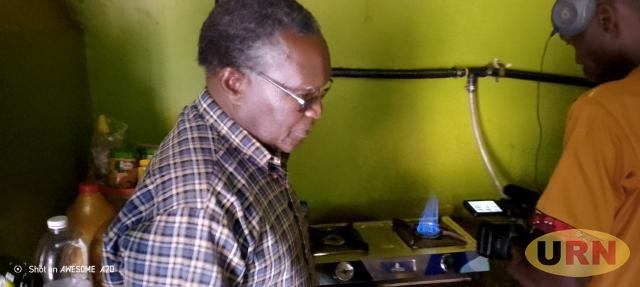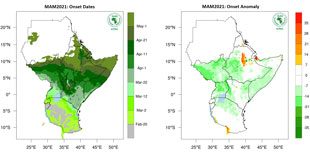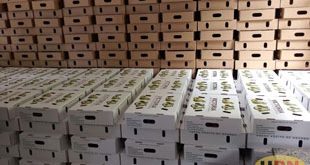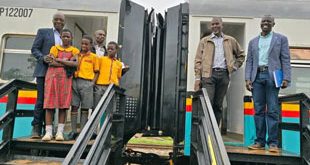
Wakiso, Uganda | THE INDEPENDENT | When Pastor Christian Aliddeki, the former President of the Uganda Union Mission, officially the Archbishop of the Seventh Day Adventist Church in Uganda, retired from active service, he wanted to go home, have a rest from the public, and enjoy the support of his six children.
Now he finds himself in a new role; giving a voice to the fight against climate change through climate-smart farming and climate-smart cooking, thanks to a bio-digester program promoted by Sistema.bio (Sistem Bio) which aims to “create value from waste”.
At his expansive retirement home in Bugema, near Bugema University in Wakiso District, Pastor Aliddeki is now realizing the many benefits of using biogas from his now three cows, which has created a whole agriculture value chain in his backyard.
“I was rearing my two cows and when the area veterinary officer saw it, she proposed that she connects me to a bio-digester project so that I could get gas for cooking,” says the 80-year-old.
Since then, for more than four months now, he says the household has reduced by half, their reliance on firewood, charcoal and liquefied petroleum gas and hence increased their disposable income, he says.
Asked about how hectic and complex it is to produce the gas, Aliddeki says, the only requirement is getting about four buckets of cow dung and feeding it into the digester, and a few hours later, the reactor is full and giving enough gas for cooking.
And now, after the gas is produced, slurry, the byproduct, which is a mixture of water and small pieces of the unbroken down dung, has given him added benefit as manure.
“We remove the slurry from the draining pit and pour it around the banana plants and coffee trees as manure. And since then, both the bananas and coffee are doing very well,” he says pointing at the plantation.
He is also blessed that his land is located in an area rich with water resources, a vital input that has to be fed into the reactor alongside the dung.
The slurry is more than enough for our coffee and bananas and sometimes we think we are applying too much fertilizer, he says.
David Mwesigwa, the Brand Marketing Coordinator at Sistema Bio advised that where such farmers have more slurry than they need, there is a huge market in their neighbourhoods where each 20-litre jerry can go for not less than 10,000 shillings each.
“But you first have to explain to them and even show how it has worked for you, then they can appreciate and buy it,” he says.
Sistema.bio, which was started 14 years ago with its headquarters in Mexico City, Mexico, has an African presence headquartered in Nairobi, with activities in Uganda, Ethiopia, Malawi, Mozambique, Senegal, Tanzania, and Zimbabwe.
The social enterprise helps smallholder farmers acquire the bio-gas system at lower costs than the market price, by using the carbon credits that the farmers are otherwise not able to trade in.
“In effect, the farmers surrender their carbon credits, and Sistema.bio converts it into a monetary value which is then used to subsidize the cost of the bio-gas system and the local farmer gets it at a much lower price,” says Mwesigwa.
A typical system, with a 12 cubic meter gas tank costs up to 1.5 million Uganda shillings, which is far less than the 12 million that a dome of equal capacity would cost, according to Mwesigwa.
He says the tarpaulin-like tank system is also much easier to maintain, in that, even troubleshooting a problem is as simple because of the few parts of the system.
“When, for example, the gas is not flowing to the kitchen, yet it is being produced, it is obvious that there is water accumulating in the pipe. Just make sure the pipe is straight,” says Mwesigwa.
Similar sentiments of Pastor Aliddeki, were voiced by Ms Debora Nalubwama of Katooke in Nanzana Municipality in Wakiso District, also a mixed urban farmer.
Nalubwama rears local breed cows for milk, grows maize mainly for feeding the cattle, as well as tomatoes and other vegetables.
The vegetables were enabled by the fertilizer and pesticides that are from slurry, a byproduct of the bio gas produced.
Nalubwama also says that she has cut down the cost of cooking to more than a third.
“I noticed that since we started using bio-gas, even the rate at which we suffer from cough and flu has greatly reduced, while the system also does not produce dirt (soot),” says Nalubwama, who also maintains a women’s hair salon.
Sistema.bio also provides the gas cookers to the beneficiaries, with a one-year warranty, while the gas tank carries a 10-year warranty, meaning that it may be either replaced or repaired when it becomes faulty within that period.
On the cost and affordability, Mwesigwa says that although their technology and the bio-gas system may cost lowly, it may not be afforded by most small-holder farmers or households in Uganda.
“We have encouraged prospective beneficiaries to join SACCOs so that it helps them get the system on credit, and many of them have done so,” he says.
Currently, there are almost 600 systems that have been deployed countrywide, according to Mwesigwa, since the project launched in Uganda in September last year, which the rate of increase rising every month.
******
URN
 The Independent Uganda: You get the Truth we Pay the Price
The Independent Uganda: You get the Truth we Pay the Price


